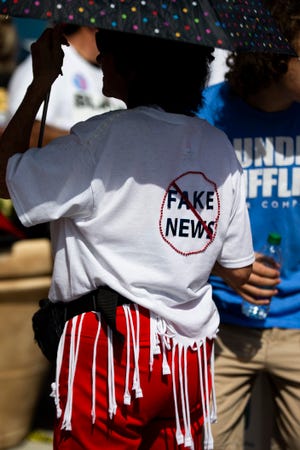I'm a former CIA analyst trained to spot fake news. Here's how you can do it, too.
 In early 2017, I watched from my desk at the CIA as the world learned Russia had waged an influence campaign targeting the U.S. presidential election months before. As an intelligence analyst, I worked in a world where countries often used covert action against each other to influence events, outcomes and policies, but the scale and scope of Russia’s actions to try to help Donald Trump get elected were unprecedented. As the intelligence community’s declassified assessment stated, Russia’s interference was “a significant escalation” in its long-running effort to undermine the United States.
In early 2017, I watched from my desk at the CIA as the world learned Russia had waged an influence campaign targeting the U.S. presidential election months before. As an intelligence analyst, I worked in a world where countries often used covert action against each other to influence events, outcomes and policies, but the scale and scope of Russia’s actions to try to help Donald Trump get elected were unprecedented. As the intelligence community’s declassified assessment stated, Russia’s interference was “a significant escalation” in its long-running effort to undermine the United States.
Since then, I have seen this revelation lead to a (mostly) collective panic, but essentially no government action. The panic has manifested in a growing distrust of institutions we traditionally counted on for information, like the news media, fear that social media conversations are orchestrated by “Russian bots,” the mainstreaming of conspiracy theories, and in the most extreme cases, people giving up on the existence of facts and truth altogether. But none of these things will solve our information problem.
No comments:
Post a Comment